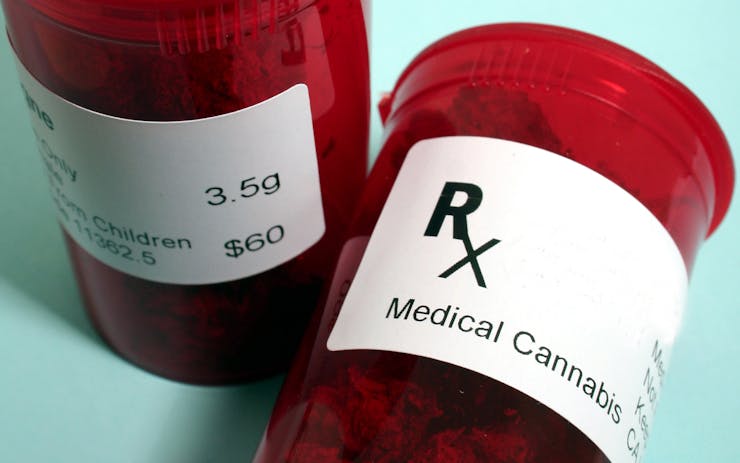Is it legal to own a firearm as a legally registered medical marijuana patient? The simple answer is no, but how strictly is this law enforced?
Cannabis and Gun Control Policy
Christopher Morales, a California criminal defense attorney, provided some legal insight into this complex matter. “The Gun Control Act of 1968 prohibits anyone from possessing guns if they use or are addicted to cannabis,” Morales explained.
“The Gun Control Act of 1968 prohibits anyone from possessing guns if they use or are addicted to cannabis.”
The exact wording of the federal law prohibits any “unlawful user” or addict of cannabis (or any other federally restricted substance) from purchasing guns, even if that individual resides in a state with legal medical or adult-use cannabis laws.
A Nevada medical marijuana patient named S. Rowan Wilson challenged the ruling after she attempted to purchase a firearm for self-defense in 2011. When the gun store refused to sell to her, she filed a lawsuit challenging the federal statute against gun ownership by a lawful marijuana patient.
The case went all the way to the 9th US Circuit Court of Appeals, where, on August 31, 2016, Chief District Judge Gloria Navarro ruled that a federal government ban of gun sales to abiding state-legal medical marijuana patients does not violate the Second Amendment.
The Background Check Loophole
Although the ruling makes this policy seem pretty definitive, that’s not always the case, according to Morales.
“The fact is that for gun purchases, every state is different. Some states require a background check, and are required to call in to check their criminal record, but they’ll get put on hold or can’t get through and just hang up,” he said. “Some states, like Georgia, are the easiest to buy a gun in. You can walk into a flea market and purchase a gun, no problem.”
US federal law clearly states that all licensed firearm dealers must perform background checks on those seeking to purchase a gun. However, unlicensed firearms dealers, such as those at gun shows, are not required to perform background checks. Approximately 22% of all firearm sales take place between unlicensed sellers who do not perform background checks. This conundrum is often referred to as the “gun show loophole.”
Eleven states (and one district) have closed the loophole by requiring background checks at the point of sale for firearms:
- California
- Colorado
- Connecticut
- Delaware
- District of Columbia
- Maryland (handguns only; assault weapons are banned)
- Nevada
- New York
- Oregon
- Pennsylvania (handguns only)
- Rhode Island
- Washington
Eight states require not only a background check, but also a permit for private purchasers:
- Hawaii
- Illinois
- Iowa (handguns only)
- Massachusetts
- Michigan (handguns only)
- Nebraska (handguns only)
- New Jersey
- North Carolina (handguns only)
It’s worth noting that none of these states specifically ban gun ownership by medical marijuana patients or adult cannabis consumers. However, if a gun owner ends up facing a large-scale cannabis cultivation charge or a possession with intent to sell charge, they may face additional aggravating factors for the connection of a firearm, in addition to a perjury charge.
Shop highly rated dispensaries near you
Showing you dispensaries nearThe ‘Full Disclosure’ Catch-22
After the Ninth Circuit Court ruling, the Bureau of Alcohol, Tobacco, Firearms and Explosives added a warning to the Firearms Transaction Record, or Form 4473, amending the question regarding whether or not the prospective firearm owner uses or is addicted to marijuana:
“Are you an unlawful user of, or addicted to, marijuana or any depressant, stimulant, narcotic drug, or any other controlled substance? Warning: The use or possession of marijuana remains unlawful under Federal law regardless of whether it has been legalized or decriminalized for medicinal or recreational purposes in the state where you reside.”
“Just say the four magic words: 'I want my attorney.'”
Saying “yes” means that even otherwise law-abiding medical marijuana patients or adults using cannabis in a legal state are not considered eligible to own a gun under federal law. Saying “no” is considered perjury and is punishable as a felony under federal laws. However, this law only applies if the gun sellers do their due diligence in completing the background check process to legally own a gun, and the regulations on gun purchases are lax and rarely enforced.
If you’re trying to cooperate with law enforcement, should you disclose that you’re carrying a firearm if you’re a lawful medical marijuana patient? We asked Morales outright whether people should disclose if they’re carrying a legally registered weapon or if they have cannabis in the car for medical purposes.
“I recommend never confessing to police if you have drugs or guns in your vehicle,” he insisted. “You are under no obligation to disclose that information.”
Instead, he made a different recommendation. “Just say the four magic words: ‘I want my attorney.’”





